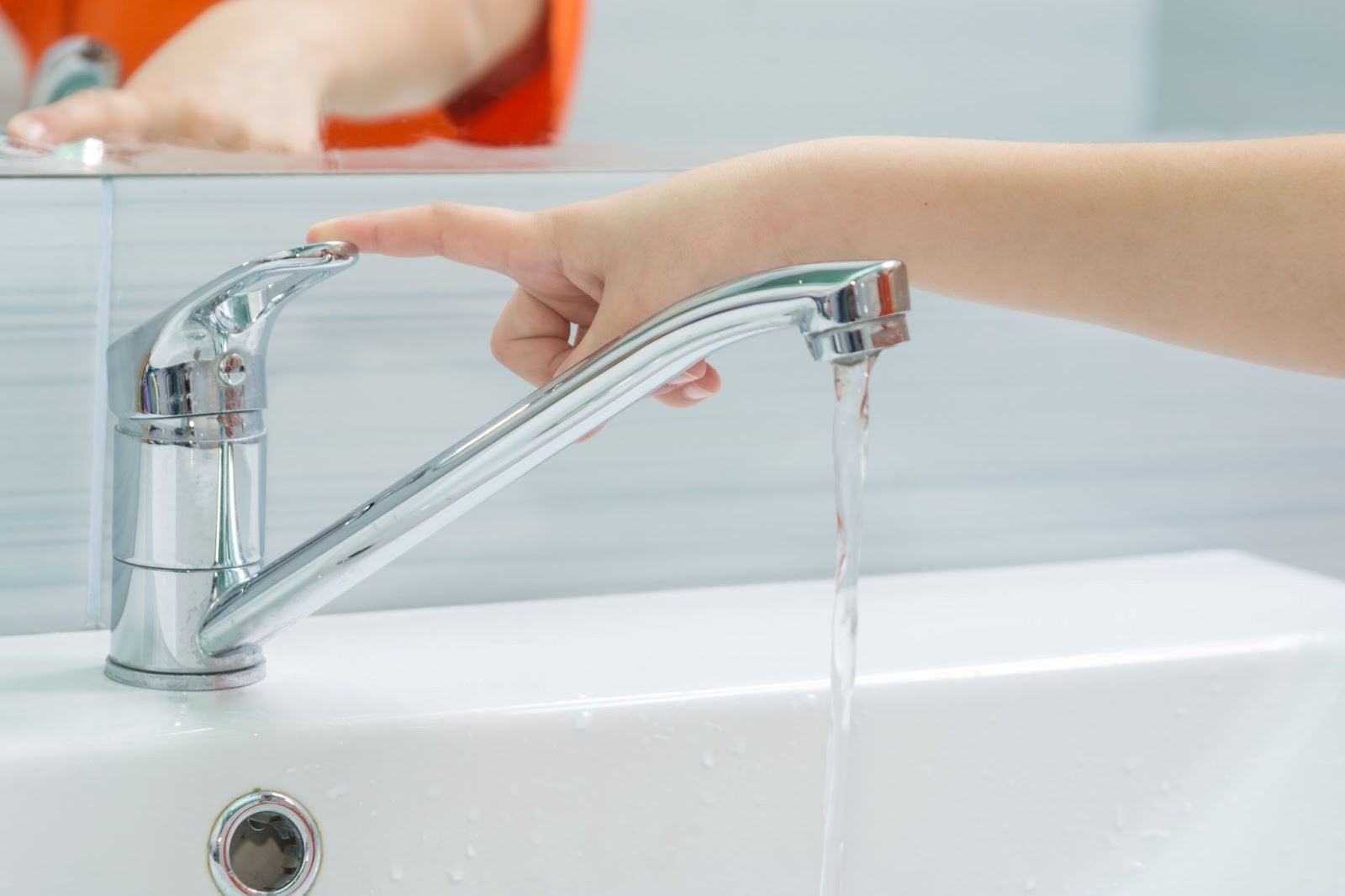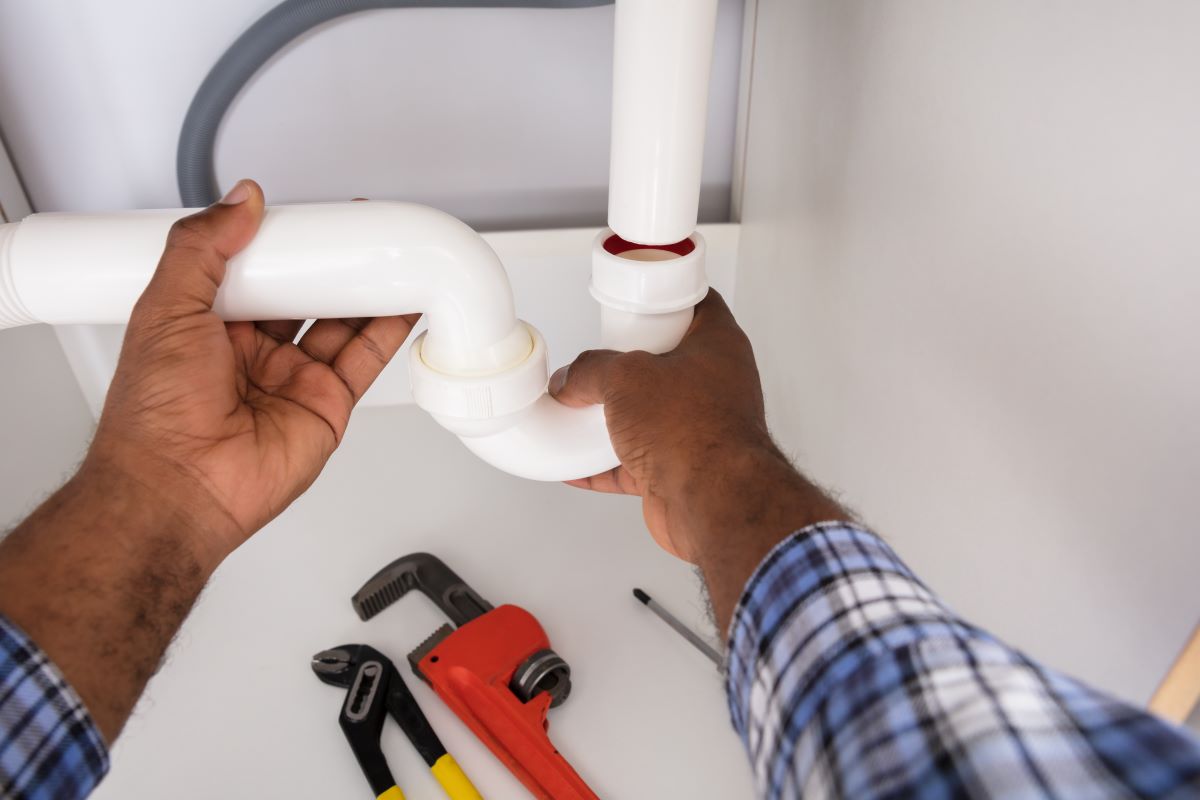Simple Ways To Address A Slow-Draining Sink
Simple Ways To Address A Slow-Draining Sink
Blog Article
This great article which follows on the subject of Solved! How to Fix a Slow Sink Drain is immensely fascinating. Check it out for your own benefit and decide what you think about it.

Introduction
We've all existed: You're cleaning your teeth or washing your hands, and you see the water merging in the sink. Rather than rapidly swirling away, it sticks around, turning your once-refreshing morning routine into a mini overload scene. A slow-draining sink isn't just frustrating; it's typically a sign of bigger pipes concerns hiding under the surface area. Fortunately is that the majority of slow-draining sinks can be taken care of with a little expertise, a couple of basic tools, and some persistence. Ready to tackle this project head-on? Let's roll up our sleeves and dive right in.
Understanding the Causes of a Slow-Draining Sink
Prior to you start poking around in your pipes, it aids to understand what might be causing the slowdown. Comprehending the origin makes it easier to select the right solution.
Tools and Materials You'll Need
The right devices make all the difference. Luckily, you will not require a completely stocked plumbing technician's van to do the job.
Step-by-Step Overview to Fixing a Slow-Draining Sink
Currently, let's enter into the nitty-gritty. This step-by-step procedure will direct you through easy techniques to restore your sink's drain.
Step 1: Eliminate and Clean the Stopper
Frequently, the stopper (that tiny plug you push down to block water) is the very first offender. Remove it very carefully and wipe any hair or crud trapped around its base. Wash it completely before putting it back in place.
Action 2: Utilize a Bettor to Remove Particles
Got that bettor all set? Placement it over the drainpipe and give it a couple of firm pumps. The concept is to produce suction that can loosen up any blockage. If you see littles particles drifting up, you're on the best track.
Step 3: Attempt a Drain Serpent or Wire Wall Mount
If the bettor does not do the trick, it's time to bring out the drain serpent. Gently feed it right into the drainpipe and spin as you go. You may feel some resistance-- that's likely the obstruction. Keep turning and drawing until you get rid of the blockage. If you don't have a drain serpent, a corrected the alignment of cable wall mount can work in a pinch.
Tip 4: Use a Do It Yourself Drain Cleaner
A natural cleaner made from baking soft drink and vinegar can break down recurring grime. Pour half a mug of baking soft drink right into the drainpipe, complied with by half a mug of vinegar. Let it fizz for about 15 mins, then flush with hot water. This chain reaction often does wonders for minor clogs.
Step 5: Reconstruct and Test the Sink
Put everything back together and run the faucet. Does the water now swirl down the drain at a respectable speed? If yes, provide yourself a pat on the back. If not, do not misery-- there are still a couple of even more dress up your sleeve.
Essential Tools for Do It Yourself Repair Works
A plunger is your best beginning point. A little, sink-sized plunger creates suction that can remove small blockages. For more persistent clogs, a drainpipe serpent (in some cases called a plumber's auger) functions wonders. A set of handwear covers, a flashlight, and perhaps a set of protective goggles are additionally convenient.
Suggested Cleaning Solutions
Light recipe soap and warm water can assist break down oily build-up. A blend of cooking soda and vinegar is a tried and true natural remedy, and enzymatic cleaners provide a more environmentally friendly strategy. Keep chemical drain cleaners as a last option, as they can be severe on your pipes.
Usual Offenders Behind Slow Drainage
So, what's clogging points up? Typically, it's a combination of everyday particles-- assume hair, soap residue, tooth paste deposit, and leftover food fragments. With time, these little bits build up and hold on to the pipe walls, gradually narrowing the flow and making it harder for water to travel through. Sometimes, mineral deposits from difficult water can additionally include in the crud, creating the perfect tornado for persistent clogs.
When is it Time to Act?
If you notice the water draining pipes slower than typical, it's an excellent idea to interfere earlier rather than later. Waiting as well long might cause finish blockages, undesirable smells, or even pipeline damage. If the water takes greater than a couple of secs to clean out after shutting off the faucet, consider it a warning and prepare to place on your DIY hat.
Safety First: Preventative Measures and Preparations
Prior to you launch into unclogging setting, consider safety. You're handling potentially unclean water and debris, so slip on a set of handwear covers. If you're making use of chemical cleaners, make certain the area is well-ventilated and follow the guidelines on the label.
Protective Gear and Work Space Configuration
Put down some old towels or cloths around the sink location to catch sprinkles. Clear away any kind of products that may get in your way, like soap dispensers or toothbrush owners. See to it you have great lights-- grab a flashlight if required.
Different Techniques for Stubborn Clogs
Not all obstructions are developed equivalent. If your sink still refuses to coordinate, take into consideration these alternative solutions.
Baking Soda and Vinegar Approach
We currently touched on this, yet it deserves keeping in mind once again. This mild, environmentally friendly approach is more secure than chemical cleaners and often rather reliable.
Enzymatic Drainpipe Cleansers
Enzyme-based cleaners make use of natural bacteria to digest organic matter. They're a superb choice if you're wanting to prevent rough chemicals. Simply remember, they may take a bit longer to function their magic.
Chemical Drainpipe Cleaning Company: Advantages And Disadvantages
Chemical cleaners can blow up through challenging obstructions quickly, however they're not without downsides. They can produce warmth and fumes, damage pipes if used exceedingly, and pose ecological dangers. Utilize them sparingly, and constantly follow the directions very carefully.
Safety Nets to Keep Your Sink Flowing
Avoidance is the best remedy. By embracing a couple of basic habits, you can keep your sink from slowing down in the first place.
Routine Cleaning Routines
Wipe down the sink basin and component location consistently. Get rid of hair or food particles prior to they have an opportunity to wash down the drainpipe.
Avoiding Damaging Compounds Away
Think twice before dumping coffee premises, grease, or coarse vegetable scraps down the sink. These wrongdoers cling to pipe wall surfaces, developing obstructions in time.
Routine Upkeep Checks
Set up a fast regular monthly assessment. Run warm water with the sink for a couple of minutes, taking note of the circulation. If it appears slow-moving, act fast before it comes to be a full-blown obstruction.
When to Call an Expert Plumber
Occasionally, regardless of how hard you try, that block simply will not move. That's when it's time to bring in the pros.
Signs That Indicate an Extra Serious Problem
If your sink drains pipes slowly despite multiple efforts, or if you notice water supporting in other fixtures (like your shower or commode), you might have an extra major plumbing concern hiding much deeper in the system.
Balancing Do It Yourself Efforts with Specialist Help
While do it yourself can save you money and provide a sense of accomplishment, there's no pity in calling a professional. A professional plumbing technician can evaluate your whole pipes configuration, making sure there's no underlying damage or lasting trouble that could cost you much more later on.
Contrasting Expenses and Long-Term Solutions
Prior to deciding, consider the big picture. A low-cost, quick fix may solve the issue temporarily, but investing in an extra permanent solution might save you cash and anxiety over time.
Weighing the Expenses of Do It Yourself vs. Specialist Fixes
Do it yourself fixes commonly cost bit more than the rate of a plunger or a container of cooking soda. Specialist services, on the other hand, featured a cost but may prevent repetitive issues and pricey repair work later on.
Buying Quality Fixtures and Upgrades
If your sink's style contributes to frequent clogs, it might be worth updating to higher-quality fixtures or altering the plumbing format. Consider this a financial investment in your home's functionality and comfort.
Verdict
A slow-draining sink can seem like a small irritation, but it's typically a sign that your pipes needs a little tender loving care. By recognizing the origin, using the right devices and strategies, and committing to basic preventive measures, you can keep your sink flowing freely. And when all else stops working, never wait to contact a specialist-- your home's plumbing is worth the investment in treatment and maintenance.
Three Common Ways to Fix a Slow Drain
Baking Soda Method
Boil a full pot of water. Measure out cup of baking soda and pour it down the drain. Then take cup of the magical cleansing substance known as white vinegar and drop that down there too. Allow the mixture to fizz in the drain for five minutes as the vinegar and baking soda combine. Now dump in that whole pot of boiling water. This combination of cleaning substances should clear out anything that is causing your sink to drain slowly. If it doesn t...
Zip-It
If the baking soda method doesn t clear out your drain, it may be because a significant amount of hair and/or other debris has collected there and you need to remove it. Purchase a Zip-It tool at any home improvement or hardware store and insert it into your drain. It will catch any collected hair or debris that s blocking the flow of water. Pull it out. If it s got a big clump of hair, etc. on the end, you ve probably got your culprit.
Drain Cleaner
If these methods don t work, there is the standard drain cleaner that you can also buy in a hardware store or even your local grocery store. It s better if you can use a household solution, but these drain cleaners often work in a pinch. They re very simple to use. You generally just dump them in your drain and wait. If even this method is not effective, it may be time to call the plumber.
https://www.mrrooter.com/oneida/about-us/blog/2017/july/three-common-ways-to-fix-a-slow-drain/

We had been shown that write-up about Solved! How to Fix a Slow Sink Drain through a good friend on our other web blog. Do you know about somebody who is excited by the subject? Be sure promote it. Thanks a lot for your time spent reading it.
Book Service Now Report this page